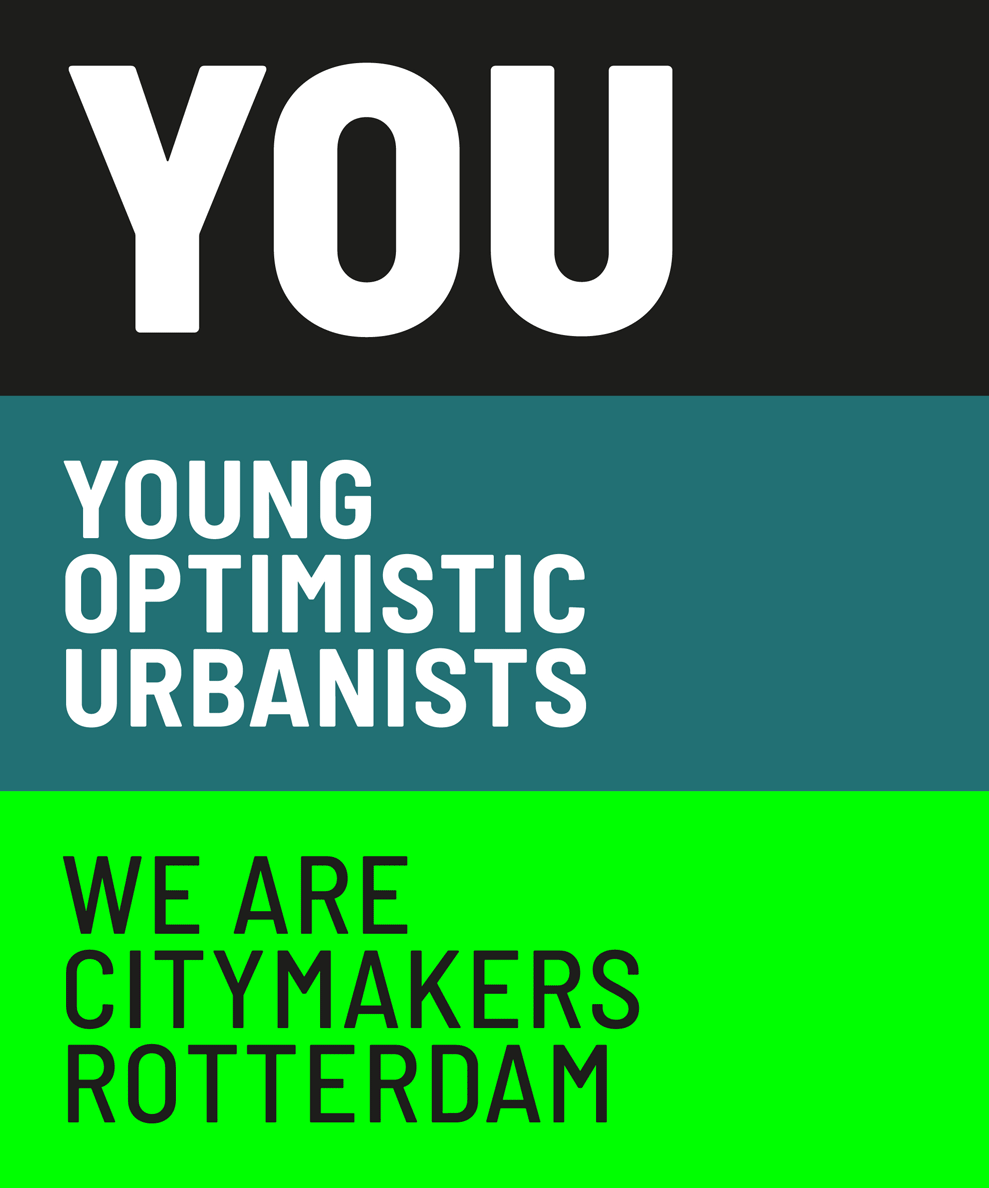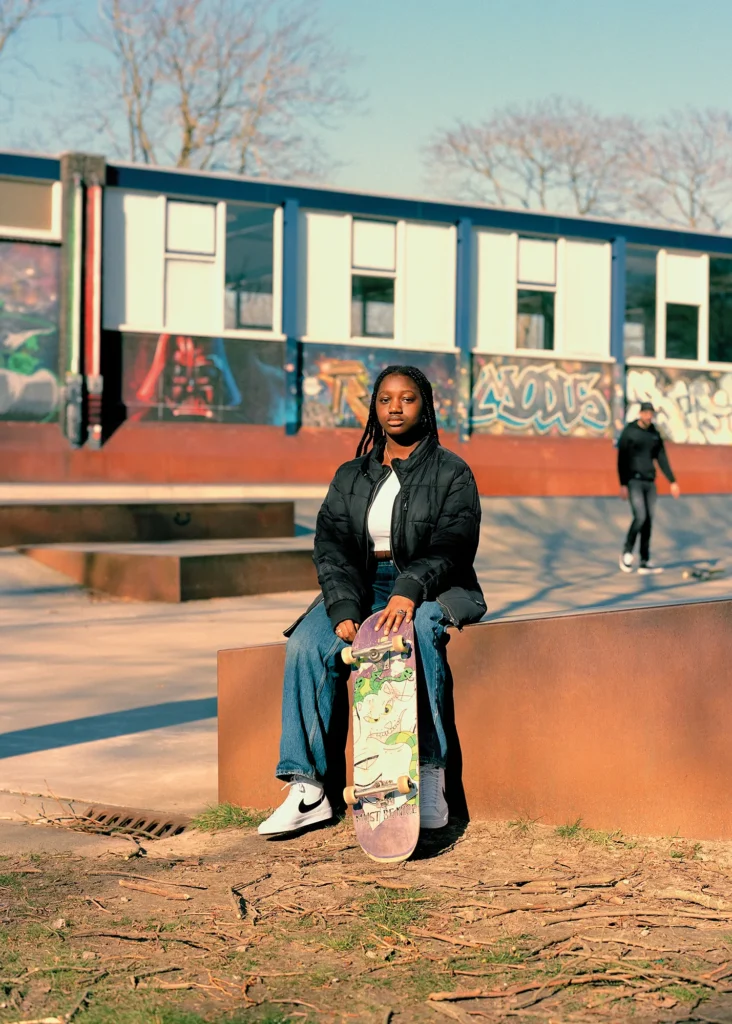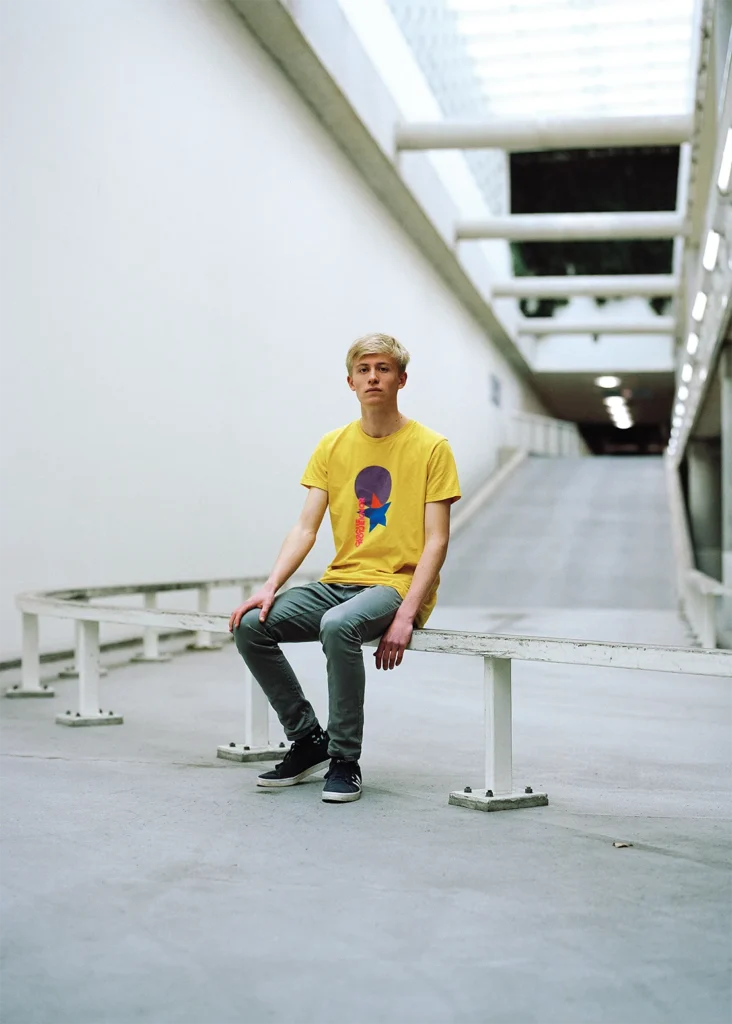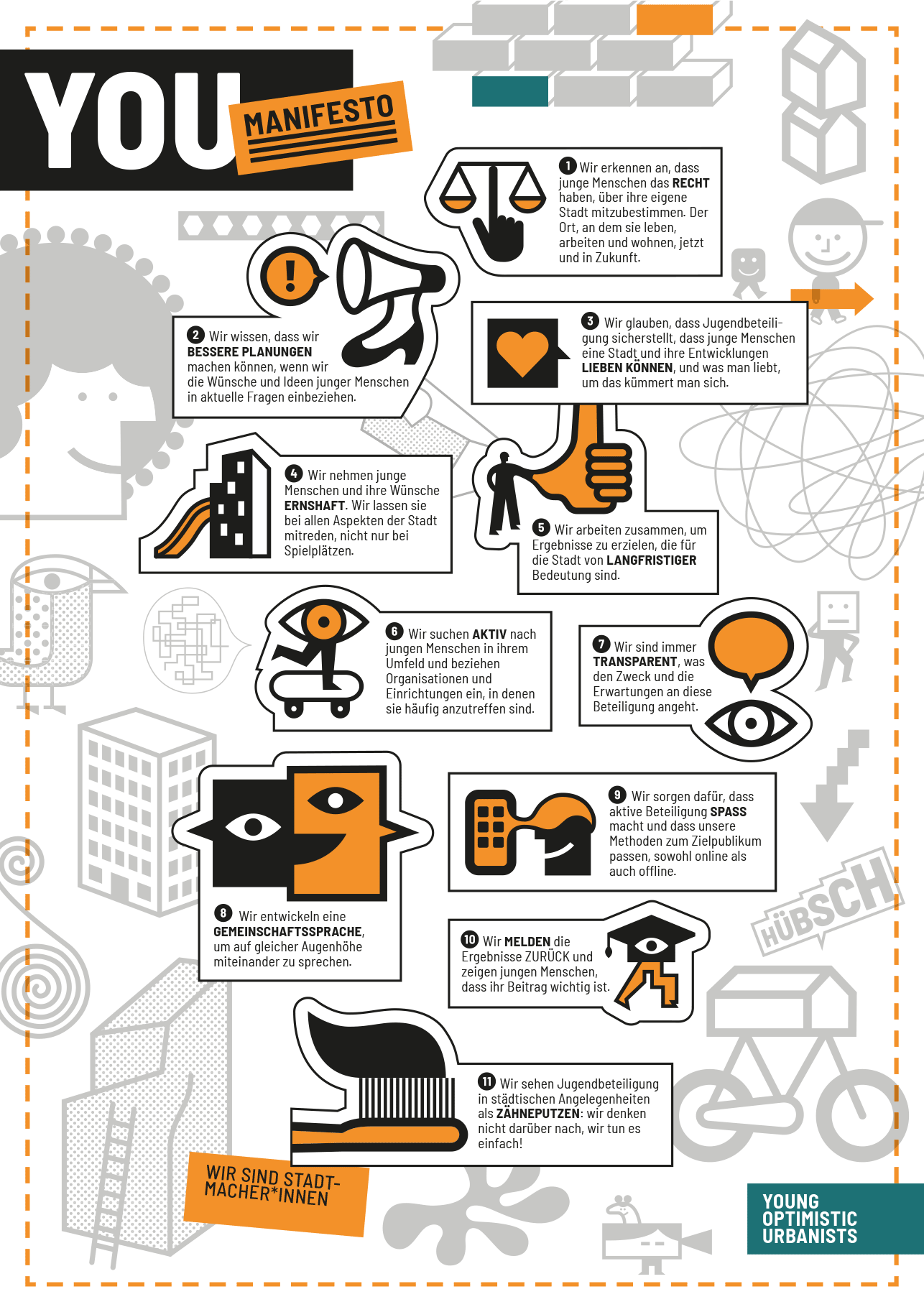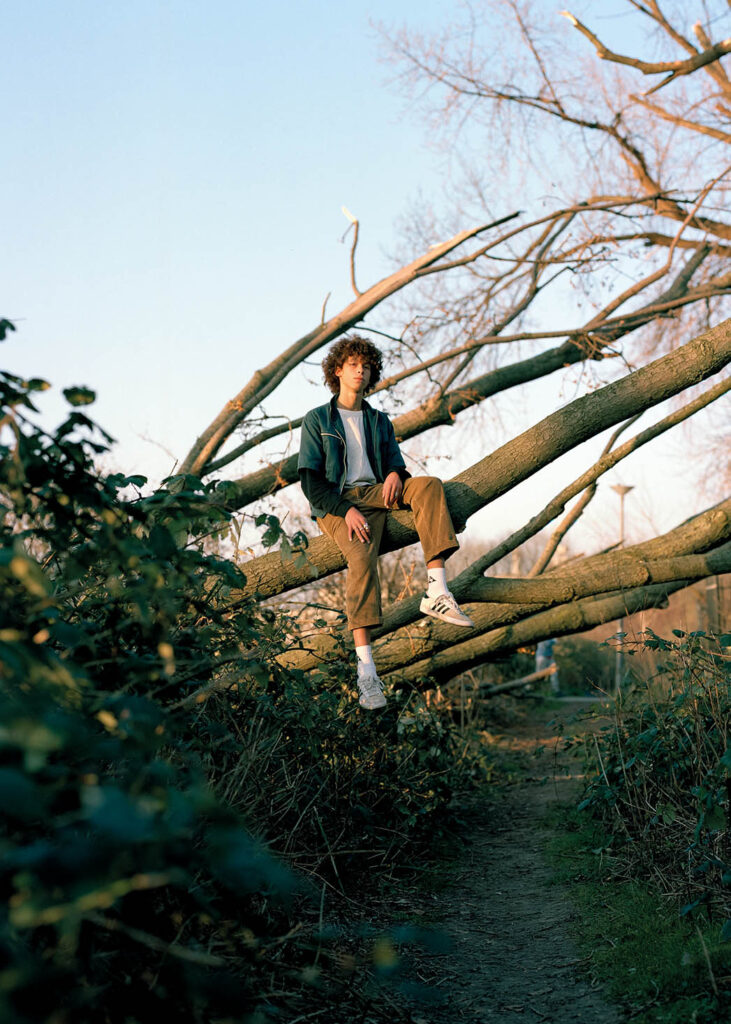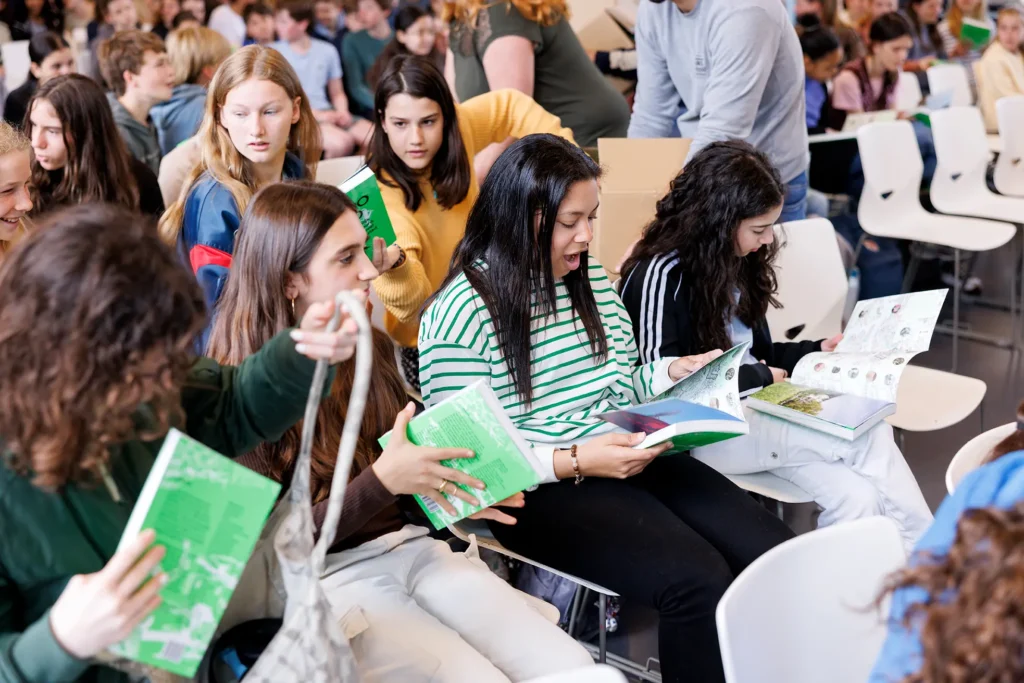Manifest
– Ellen Schindler –
In conversation with the youngest city dwellers
As urban planners, we work on the city every day. With the book, we already asked ourselves whether we should talk about the city in a different way. We realize that transformation processes in the city are becoming increasingly complex. Social challenges are increasing and piling up, and it seems more difficult to involve city dwellers in these processes.
If we want the debate on future urban development to be sustainable and inclusive, it is important that we consider children and young people as full citizens with full rights. They are entitled not only to food, housing and education, but also to have a say in their own future. Thus, we should also empower them to participate in discussions. And take their wishes and ideas seriously, even if they are not yet official voters.
Let us therefore involve the young generation seriously, concretely and structurally in the development of the city.
- SERIOUS, because we must adapt our language and our instruments to the perception of young people
- CONCREATE, because it must also lead to actual results, and we should share these results in return
- STRUCTURAL, because we need to institutionalize youth participation
During the Polis Convention 2024 in Düsseldorf, De Zwarte Hond organized a workshop on the polisWERK.STADT in which we developed the Manifesto “The City Makers of Tomorrow” together with the participants. In it, using 11 statements, we call on professional city makers to involve young people when developing projects in the city.
Manifesto ‘The City Makers of Tomorrow’
- We recognize that young people have the RIGHT to have a say in their own city. The place where they live, work and live, now and in the future.
- We know that we can make BETTER PLANS if we include the wishes and ideas of young people in current issues.
- We believe that youth participation can help young people to LOVE a city and its developments. And what you love, you take care of!
- We take young people and their wishes SERIOUSLY. We let them have a say in all aspects of the city, not just playgrounds and skateparks.
- We work together to achieve RESULTS that are important for the city in the long term.
- We ACTIVELY seek out young people in their neighborhoods and involve organizations and institutions where young people can often be found.
- We are always TRANSPARENT about the purpose and expectations of this participation.
- We develop a JOINT LANGUAGE to talk to each other on an equal footing.
- We make sure that active participation is FUN and that our methods fit the target audience, both online and offline.
- We COMMUNICATE results back and let young people see that their contribution is important.
We see youth participation in urban development as BRUSHING TEETH: we don’t think about it, we just do it!
With the organization of the POLIS, we are currently investigating how to offer the manifesto to German cities in the best and widest possible way. The goal is to get as many cities as possible to embrace the manifesto and start the internal discussion to involve young people in future projects in the city. And we are going to unfold this pilot in the Netherlands as well. We are already in contact with several Dutch professional city makers (urban development departments of cities, developing contractors and investors) for a collaboration to investigate whether the manifesto can be used to involve young people in the development of concrete areas.
A guide
As urban planners, we work on the city every day. With the book, we were already asking ourselves whether we could have a different conversation about the city. We realize that transformation processes in the city are becoming increasingly complex. Social challenges are increasing and piling up, and it seems increasingly difficult to involve city dwellers in these processes.
If we want the debate on future urban development to be sustainable and inclusive, it is important that we consider children and young people as full citizens with full rights. They are entitled not only to food, housing and education, but also to have a say in their own future. However, we must also empower them to participate in discussions. And take their wishes and ideas seriously, even if they are not yet voters.
“IN AN INTELLIGENT CITY, PEOPLE DISCUSS THE QUESTION: ‘WHAT KIND OF CITY DO I WANT TO BE?”
– Martijn van der Mark, Municipality of Rotterdam –
How do you involve young city makers in city making?
The manifesto is thus the ‘WHAT’, but the first ‘HOW’ questions are already being asked. Therefore, together with the TU Berlin (Unit Habitat), a guide “How to involve young city makers in city making?” will be developed in the coming months, which, together with the manifesto, we can offer to professional city makers.
With the manifesto and the guide, we invite them to consult the young generation in the city and include their perspectives, opinions and wishes in their own urban development processes. After all, young people are also the city makers of today, and the residents of tomorrow!
